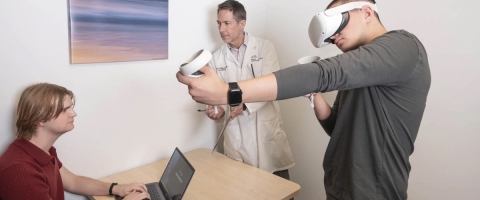The Department of Psychiatry leads efforts to comprehensively prevent and treat psychiatric disorders, conduct cutting-edge research, and prepare future clinicians through rigorous, experiential education. Our commitment to non-discrimination focuses our dedication to serving Southern Arizona’s unique patient populations.
Events
Psychiatry Grand Rounds: Bring in the Social Context into Computational Psychiatry
Wednesday, February 18, 2026 - 12:00pm
News
The conference on Jan. 17 will empower primary and behavioral health care providers to confidently care for perinatal and child and adolescent patients living with psychiatric disorders.
Associate Professor of Psychiatry and Director of the U of A Sleep and Health Research Program Michael Grandner, PhD, is quoted in this Popular Science article.









